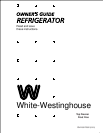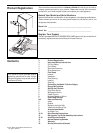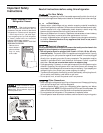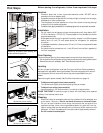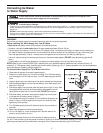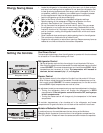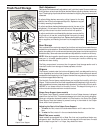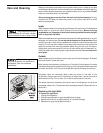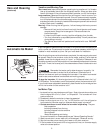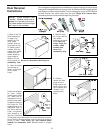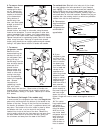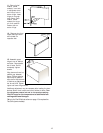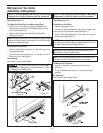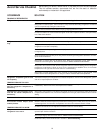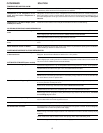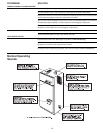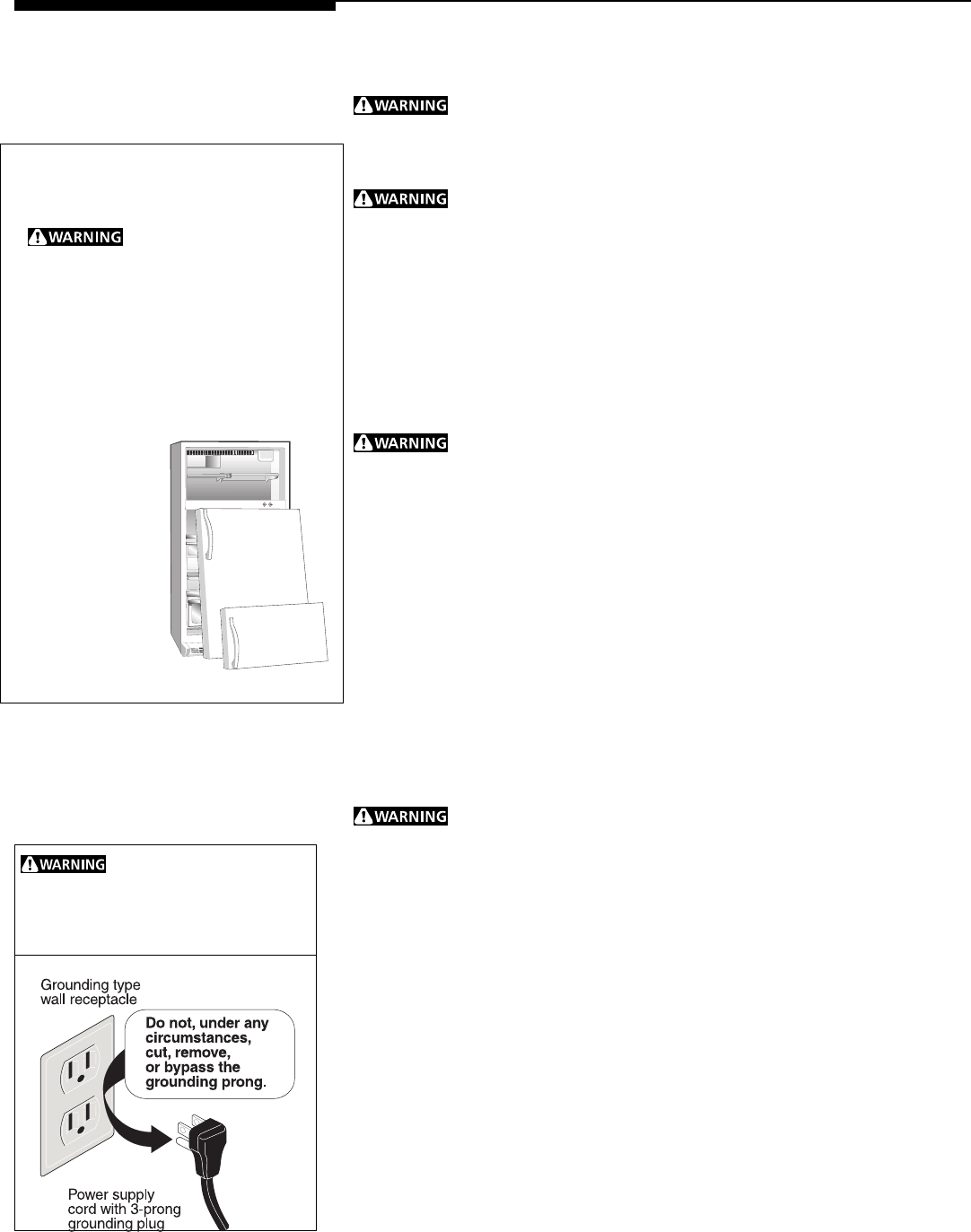
3
Important Safety
Instructions
Proper Disposal of Your
Refrigerator/Freezer
Risk of child entrapment.
Child entrapment and suffocation are not
problems of the past. Junked or abandoned
refrigerators or freezers are still dangerous
— even if they will sit for "just a few days."
If you are getting rid of your old refrigerator
or freezer, please follow the instructions
below to help prevent accidents.
BEFORE YOU THROW AWAY YOUR OLD
REFRIGERATOR/FREEZER:
• Remove doors.
• Leave shelves in
place so children
may not easily
climb inside.
Read all instructions before using this refrigerator.
For Your Safety
Do not store or use gasoline or other flammable vapors and liquids in the vicinity of
this or any other appliance. Read product labels for flammability and other warnings.
Child Safety
• Destroy carton, plastic bags, and any exterior wrapping material immediately
after the refrigerator is unpacked. Children should never use these items for play.
Cartons covered with rugs, bedspreads, plastic sheets or stretch wrap may
become airtight chambers and can quickly cause suffocation.
• Remove all staples from the carton. Staples can cause severe cuts and destroy
finishes if they come in contact with other appliances or furniture.
• An empty, discarded ice box, refrigerator or freezer is a very dangerous attraction
to children. Remove the door of any appliance that is not in use, even if
it is being discarded.
Electrical Information
These guidelines must be followed to ensure that safety mechanisms in the
design of this refrigerator will operate properly.
• The refrigerator must be plugged into its own 115 Volt, 60 Hz, AC only
electrical outlet. The power cord of the appliance is equipped with a 3-prong
grounding plug for your protection against shock hazards. It must be plugged
directly into a properly grounded 3-prong receptacle. The receptacle must be
installed in accordance with local codes and ordinances. Consult a qualified
electrician. Do not use an extension cord or an adapter plug.
• If voltage varies by 10 percent or more, performance of your refrigerator may be
affected. Operating the refrigerator with insufficient power can damage the
compressor. Such damage is not covered under your warranty. If you suspect your
voltage is high or low, consult your power company for testing.
• To prevent the refrigerator from being turned off accidentally, do not plug the unit
into an outlet controlled by a wall switch or pull cord.
• Do not pinch, knot, or bend the power cord in any manner.
Other Precautions
• Never unplug the refrigerator by pulling on the power cord. Always grip the plug
firmly and pull straight out from the receptacle.
• To avoid electrical shock, unplug the refrigerator before cleaning and before
replacing a light bulb. NOTE: Turning the control to OFF turns off the compressor, but
does not disconnect power to the light bulb or other electrical components.
• Do not operate the refrigerator in the presence of explosive fumes.
• If the refrigerator has an automatic ice maker, avoid contact with any moving parts.
Avoid fire hazard or electric
shock. Do not use an extension cord or an
adapter plug. Do not remove any prong
from the power cord.



